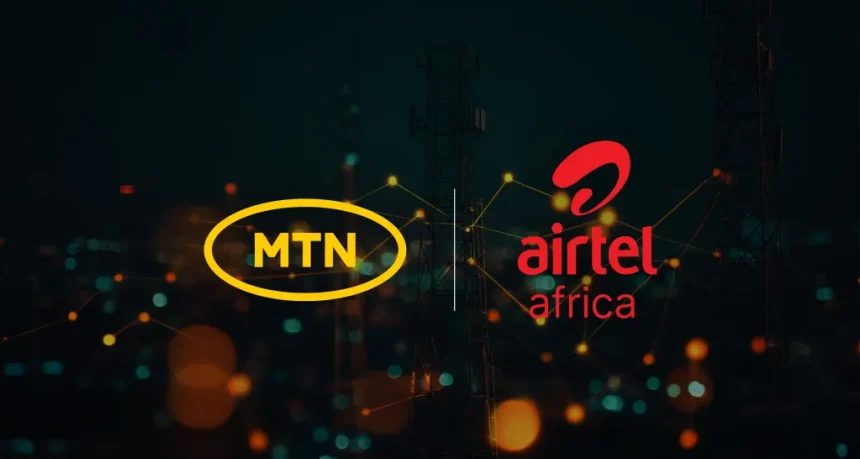In a significant move aimed at reshaping Africa’s telecommunications landscape, MTN Group and Airtel Africa have announced a strategic infrastructure sharing agreement in Uganda and Nigeria. This alliance, unveiled on Wednesday, aims to optimize investments while simultaneously expanding service coverage, addressing the escalating demand for digital and financial services across the continent.
“There are opportunities within regulatory frameworks for sharing resources to drive higher (operational) efficiencies and improve returns,” stated MTN Group CEO Ralph Mupita, highlighting the economic rationale behind the collaboration. Airtel Africa Chief Executive Officer Sunil Taldar echoed this sentiment, emphasizing that the agreement would “avoid duplication of expensive infrastructure.”
The essence of this partnership lies in the shared utilization of mobile phone network infrastructure, a move that allows both operators to extend their reach more rapidly, particularly into rural and less densely populated areas where individual network build-outs might prove economically unfeasible. This is crucial considering the rising demand for robust connectivity, especially as Africa navigates its digital transformation.
As someone who has followed the industry closely, I recognize the implications of this partnership. It’s not just about cost savings; it’s about bridging the digital divide. For many Africans, access to reliable mobile networks is a lifeline to financial inclusion, education, and essential services. This collaboration promises to accelerate that access, particularly for marginalized communities.
The scope of the agreement extends beyond mere tower sharing. The companies are exploring radio access network sharing, which constitutes a significant portion of network deployment and operational costs. Moreover, they are considering commercial and technical agreements for fiber infrastructure sharing, and where necessary, joint construction of fiber networks.
“This engagement does not preclude the parties from collaborating with other operators in any respective market,” the companies clarified, leaving room for broader industry collaboration. This open approach signals a potential paradigm shift in how telecom infrastructure is developed and managed across Africa.
Read Also: Nigeria 5G: Subscription Falls to 4.05m After Audit
Looking ahead, MTN and Airtel Africa plan to explore similar opportunities in other key markets, including Congo-Brazzaville, Rwanda, and Zambia. This expansion reflects a broader trend of strategic alliances within the African telecom sector, driven by the need to optimize resources and accelerate network expansion.
This infrastructure sharing agreement represents a pragmatic response to the challenges of deploying and maintaining costly networks, particularly for 5G connectivity. The financial implications are substantial, and the potential for increased operational efficiency cannot be overstated. However, the human angle is equally critical. For millions of Africans, this collaboration translates to improved access to vital digital services, fostering economic growth and social inclusion.
In essence, this partnership is more than a business deal; it’s a strategic move with far-reaching implications for Africa’s digital future.













